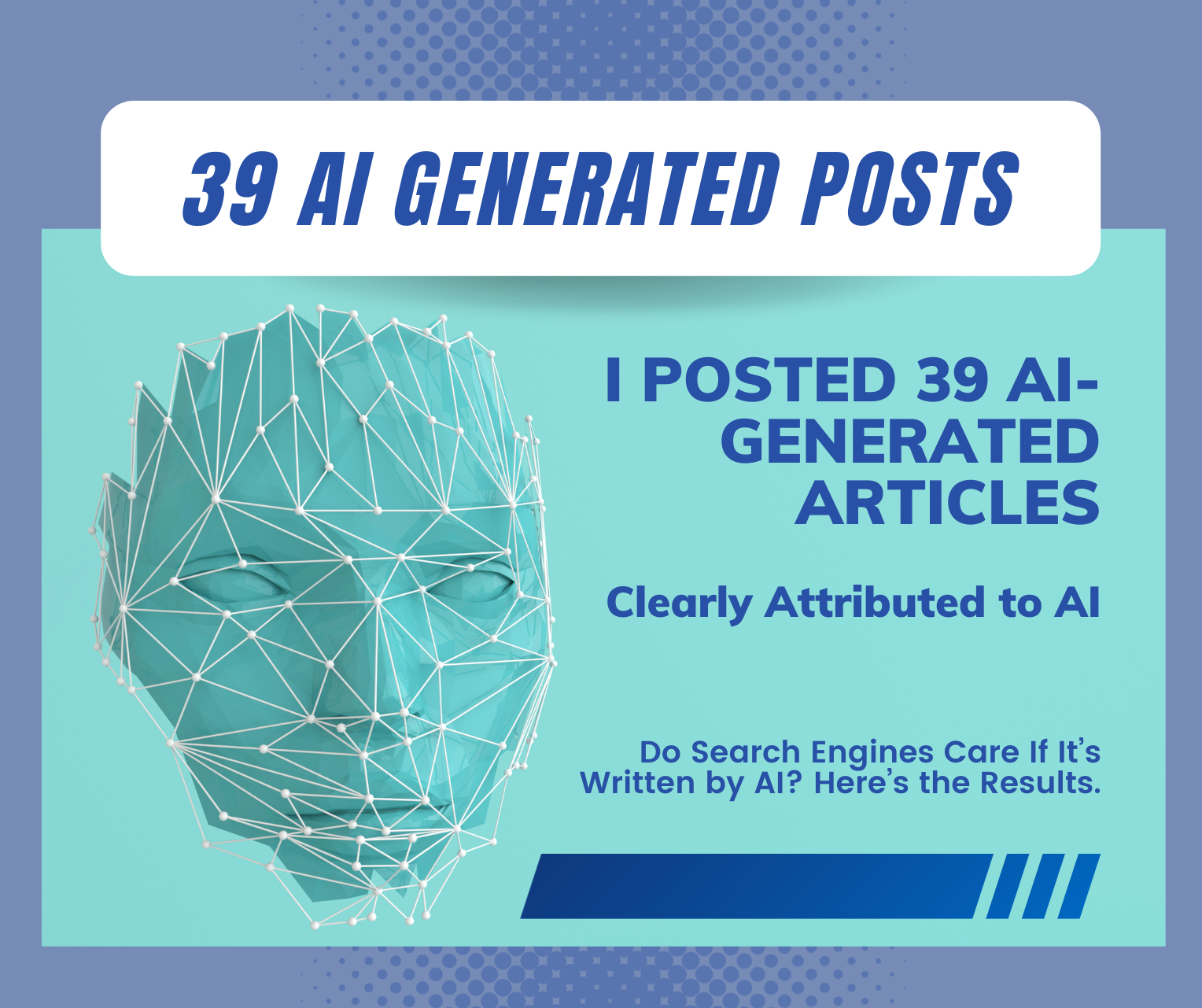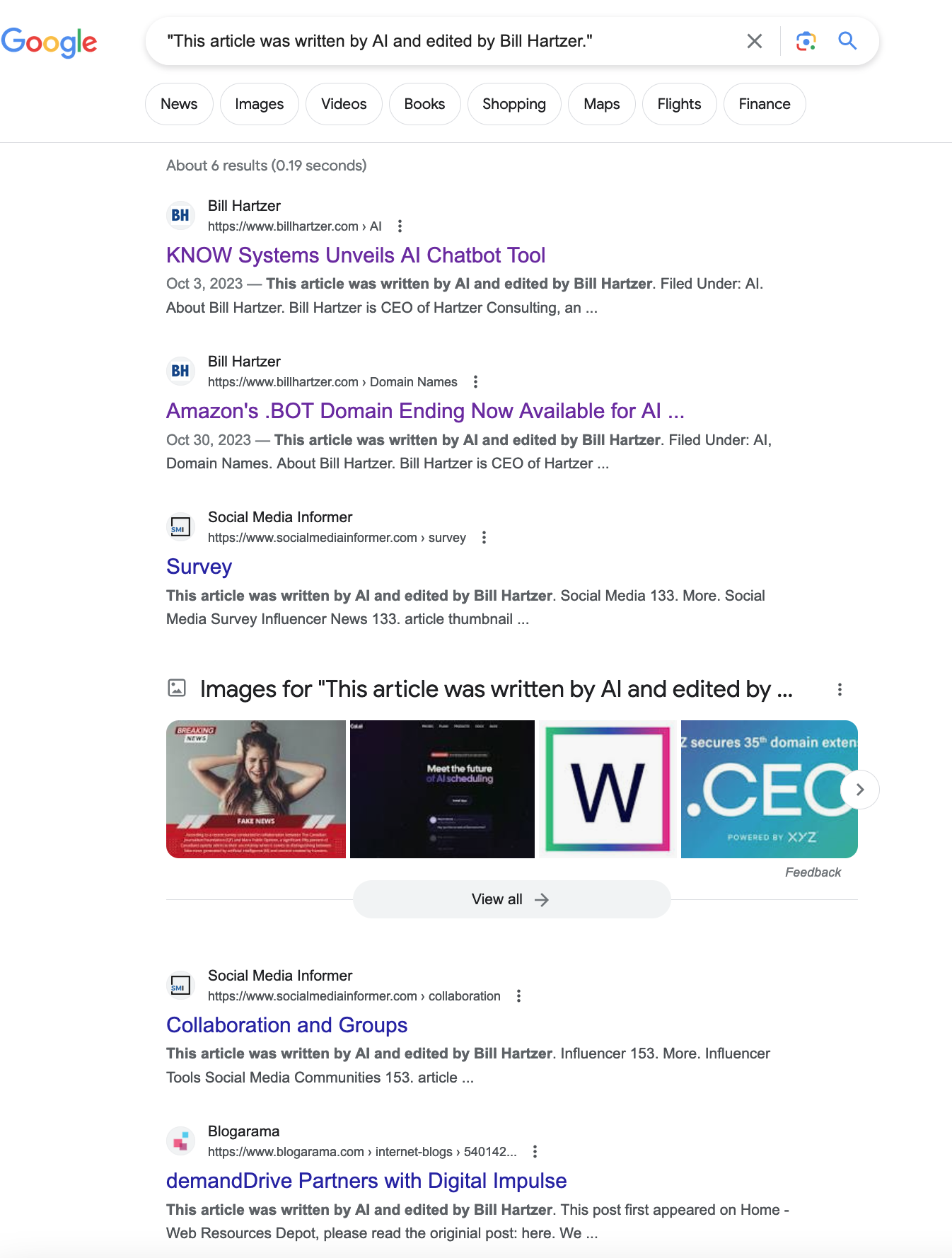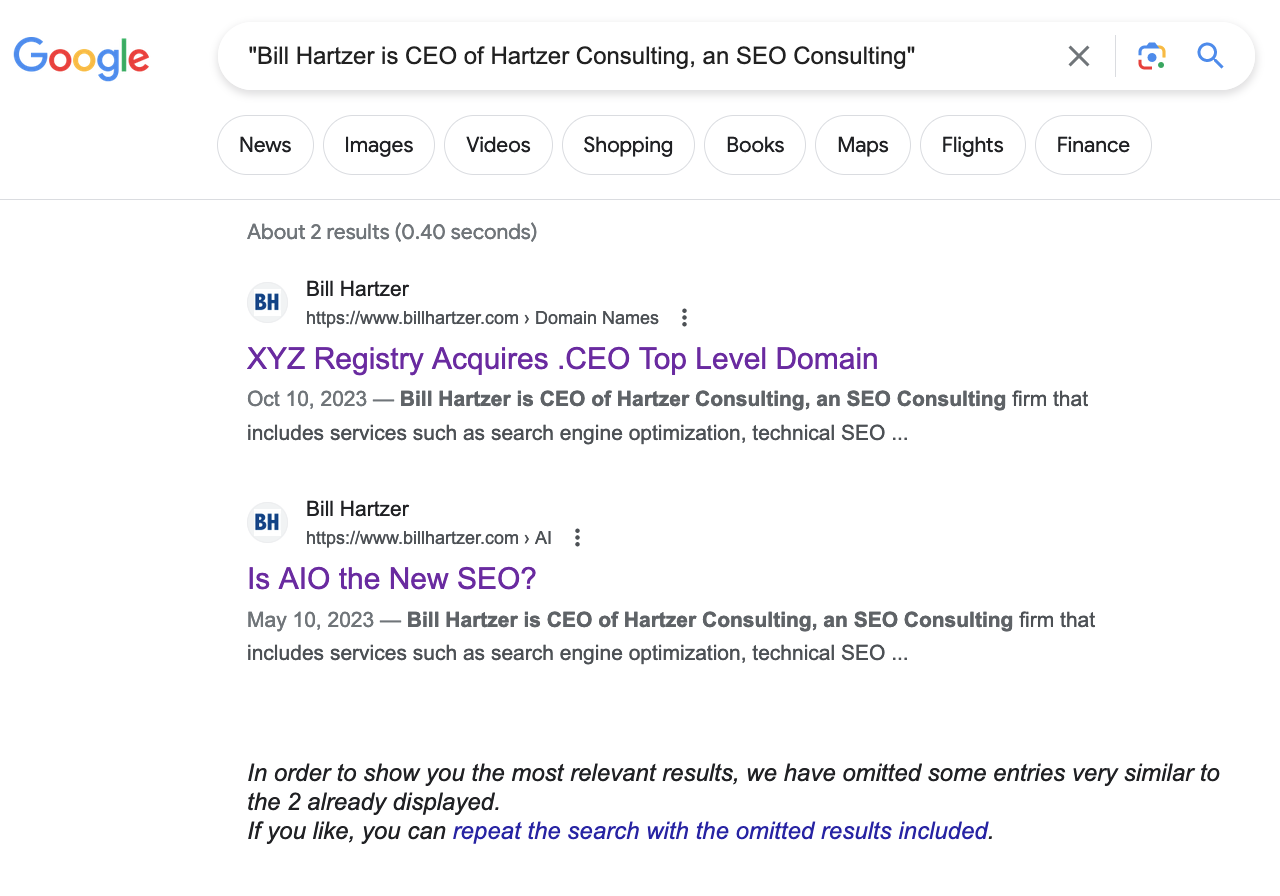
I posted 39 articles in October 2023 on this blog (BillHartzer.com) with the help of AI. These were press releases from Cision, all related to topics I normally write about on my blog.
My process, daily, was to find relevant news related to what I normally write about on my blog. I’d find the press releases, then use AI to rewrite them as news articles. I then manually edited them, rewrote the title in most cases, added content to them (such as reviewing the website related to the post), and manually added the appropriate logos, screen captures, and images/photos. All something that I would typically consider a “journalist” or “blogger” would do. These aren’t 100 percent AI generated articles, they’re all manually edited and updated. The 39 articles were not AI-generated and auto-posted.
On all of these posts, at the bottom, I included a statement, “This article was written by AI and edited by Bill Hartzer.” In fact, you can go to Google and search for that statement in quotes. What you’ll see is interesting, and my point here.
Here’s the search engine results at Google:

As you can see, it appears that Google “likes” 2 of the articles. Just 2 out of 39 total.
They also have included a carousel of images, all of which I ‘manually’ created and added into these 39 articles.
What you see at the end of the search engine results, though, is interesting:

“In order to show you the most relevant results, we have omitted some entries very similar to the 6 already displayed.
If you like, you can repeat the search with the omitted results included. ”
Clicking on the link “repeat the search with the omitted results included” will show all of the 39 posts.
Based on my experience, what I’ve always believed, is that when Google shows the “In order to show you the most relevant results, we’ve omitted some entries…” is that the entries that are omitted are pages that, for some reason, they think are “less worthy” and not as important. They could be considered to be thin content in some cases.
So let’s look at this a bit in more detail.
If I take one of the headlines of one of the posts, one of the posts that they’re hiding in the results for that query, “Moz Launches Free Local Business Content Marketing Guide”, and I look for that headline without quotes, I see that the post is ranking 4th, behind Moz and PRNewswire. Another post, “Cal.com Launches Cal.ai” is 4th. And another random one of the 39 posts, “PinMeTo Achieves ISO 27001 Certification” ranks 3rd. So it’s not like those posts don’t rank–if they were just merely duplicated or copied articles from the press releases, and not actually unique content, then I don’t think they’d be showing up well in the search engine results pages when you search for the headline or part of the headline without quotes.
Do you think that the statement, pointing out the fact that the article was written by AI, has anything to do with Google only “liking” 2 articles of the 39, and then hiding the rest?
To put something into perspective here, I took another keyword phrase that appears on over 500 articles that I’ve written and posted on my blog, the same site. The phrase is “Bill Hartzer is CEO of Hartzer Consulting, an SEO Consulting”, which is the first part of my ‘bio’ that I have at the end of each post. That bio is the same across all posts on the site. If you search Google for that phrase, shown below, you’ll see something interesting:

You’ll see 2 posts, and then that same “In order to show you the most relevant results, we have omitted some entries…” And clicking on the “repeat the search…” shows me 594 posts, which seems about right. There’s at least 500+ posts that have that statement on it.
Because of the fact that I’m seeing the same sort of behavior with the “this article was written by AI..” as I do with “Bill Hartzer is CEO of Hartzer Consulting…”, this leads me to believe that Google probably doesn’t care that the article was written by AI and then edited by me.
The posts that I’ve done, the 39 posts in October 2023, where I literally told everyone that the article was written by AI, tend to rank fairly well (in the top 5 results), so I don’t think Google cares if the article was written by AI or if it was written manually by a human writer (me). My opinion is that Google’s pulling 2 of the posts and showing you those posts when you search for something “in quotes” where they’ve seen the same statement on multiple posts. From what I can tell, there’s nothing really special about those particular posts that they’re showing versus the posts that they’re hiding or omitting in the search query.
My conclusion here, after testing 39 posts with “This article was written by AI and edited by Bill Hartzer.” on them, is that the search engines do not care whether or not the article was written by AI. So, if AI helps you as a writer, go for it. I still prefer to manually edit any post or web content if I start with AI to help me write. And as for my blog in particular, I may or may not continue to use AI. I haven’t decided if it’s worth it or not. One thing’s for sure, though, THIS post was not written by AI.